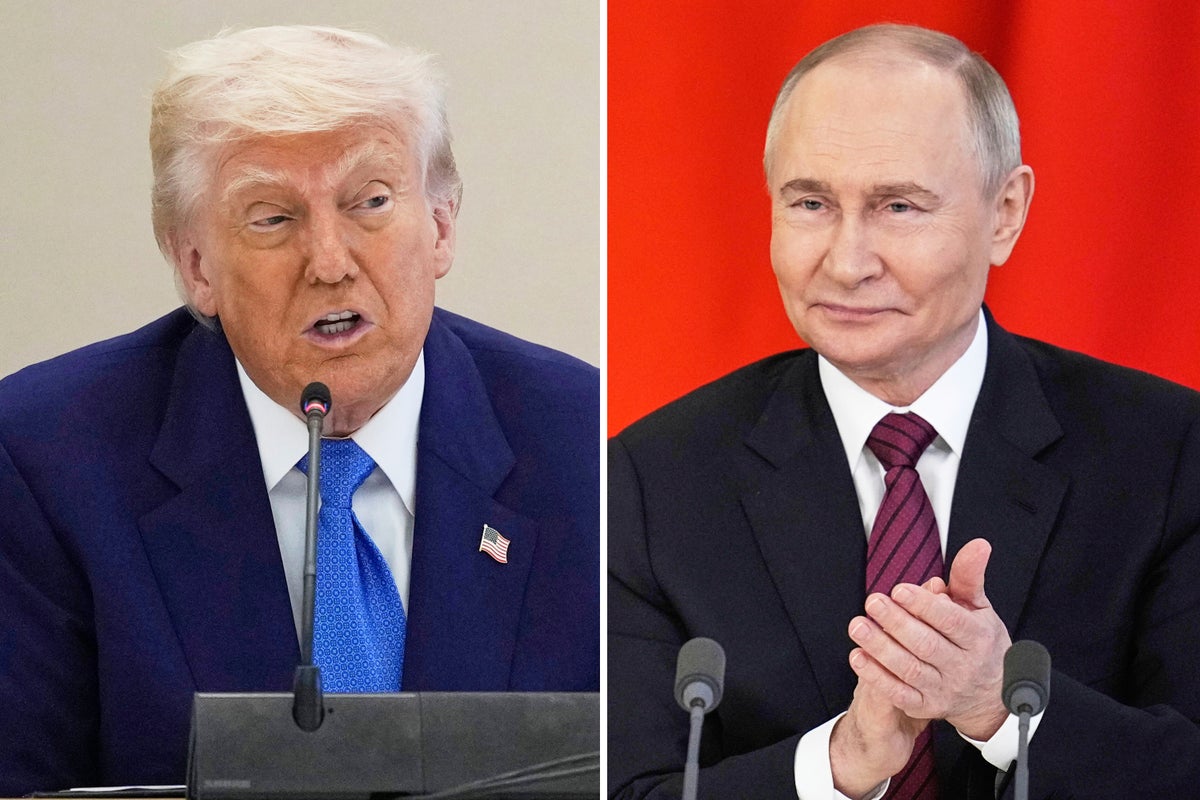
Speaking alongside Nato chief Mark Rutte in the Oval Office on Monday, US President Donald Trump announced 100 per cent tariffs for Russia if a peace deal is not reached within 50 days.
But rather than be spooked, the Russian stock market rose by 2.7 per cent.
Russia had been expecting tougher sanctions from Trump with local media bracing the country for a fresh confrontation.
“Russia and America are moving towards a new round of confrontation over Ukraine,” a Russian tabloid initially warned on Monday, before the meeting.
“Trump’s Monday surprise will not be pleasant for our country.”
Instead the 50 day timeline gives Russia time to negotiate and delay the sanctions.
The new tariffs act as secondary sanctions targeting countries that buy Russian oil, as Moscow and Washington have almost no trade relationship following Biden’s sanctions.
“If President Trump follows through on his threat to impose secondary tariffs on buyers of Russian energy, leading to a sharp drop in Russian energy flows, it would invariably lead to higher global energy prices,” said Kieran Tompkins, senior climate and commodities economist at Capital Economics.
But Mr Tompkins added: “The 50-day deadline maintains the possibility that the oil market will avoid any disruption whatsoever and because the tariff rate is lower than the 500 percent contained in Lindsey Graham’s Sanctioning Russia Act of 2025.”
While Trump may have performed below market expectations, his announcement marked a tougher rhetorical stance towards Putin.
“I’m disappointed in President Putin, because I thought we would have had a deal two months ago, but it doesn’t seem to get there,” he said.
The president also hinted that the First Lady, Melania Trump, may have contributed to his decision to send Patriot missiles.
“I go home, I tell the first lady, ‘I spoke to Vladimir today, we had a wonderful conversation.’ And she says, ‘Oh really, another city was just hit’,” he said from the Oval Office.
The first lady was born behind the Iron Curtain in 1970 and grew up in former Yugoslavia.
